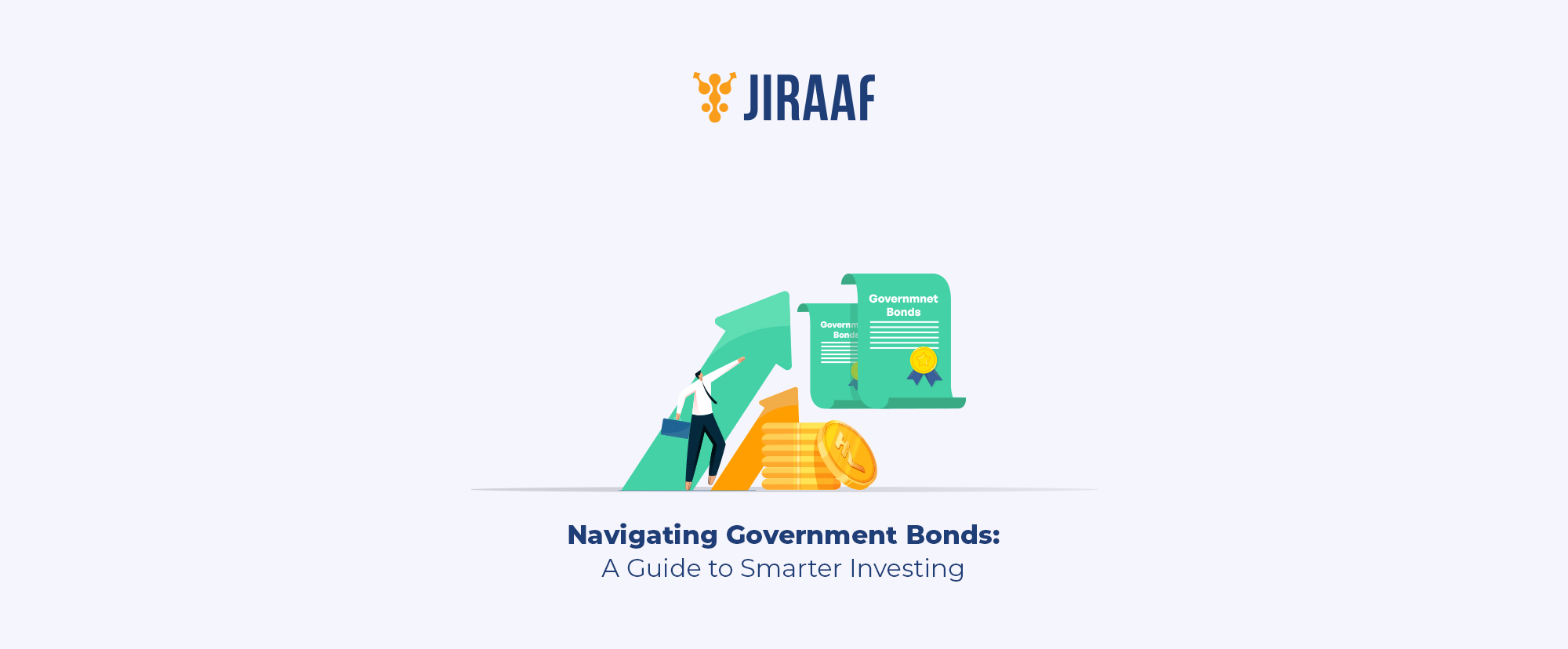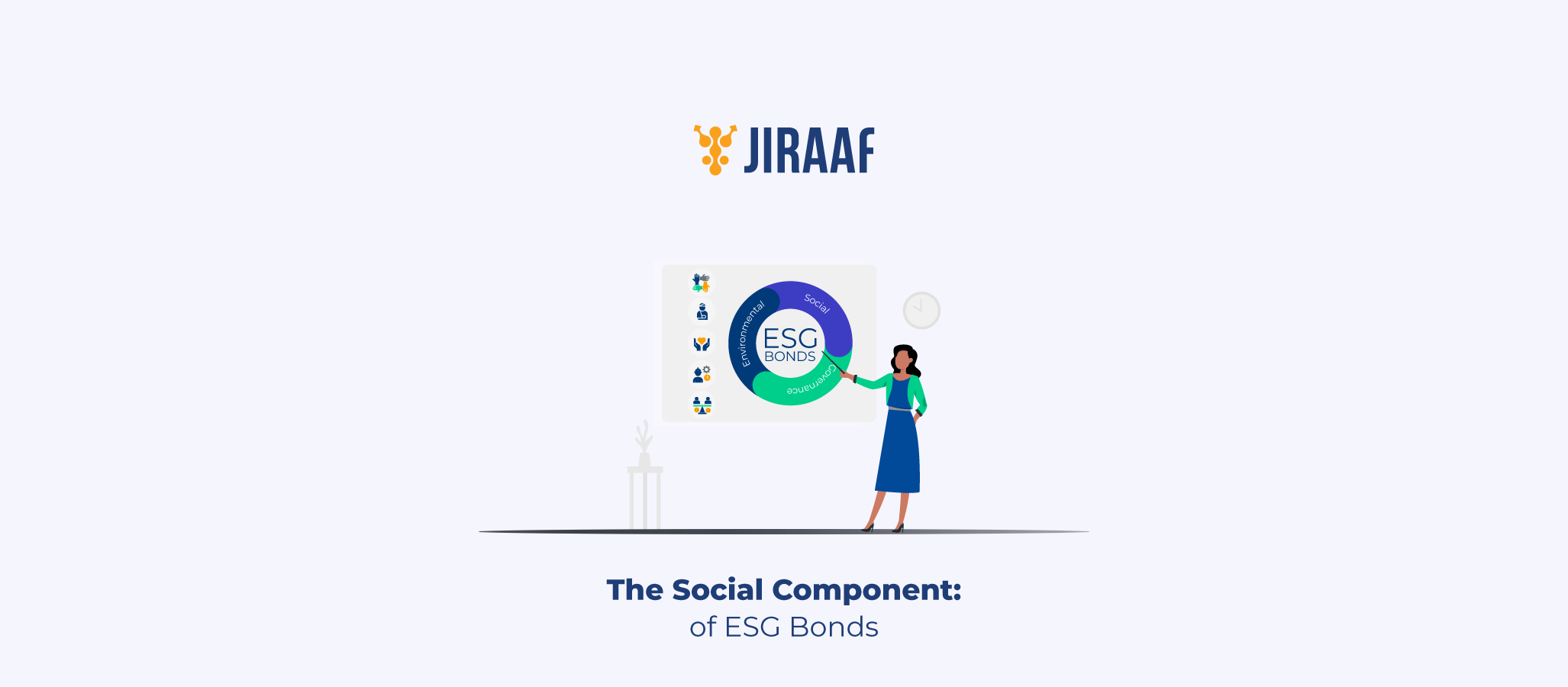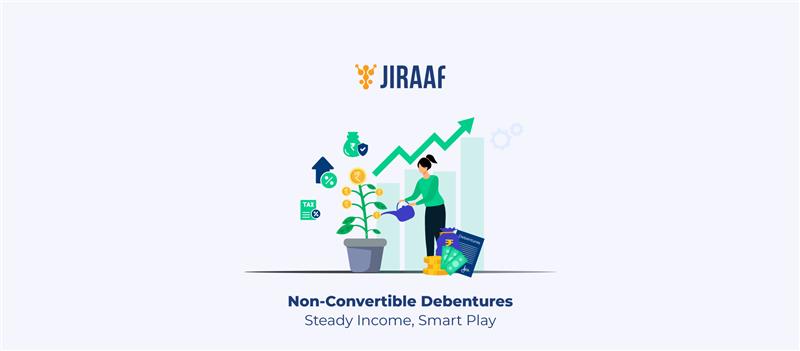In the fixed-income investments world, government securities are considered a reliable option for conservative investors. Government securities play a vital role in ensuring financial stability and providing low-risk opportunities to a variety of investors.
However, government bonds, a type of government security, stand out for their longer tenure and predictable returns, making them a go-to choice for risk-averse investors or those looking to diversify their portfolios.
What are Government Bonds?
Government bonds are fixed-income securities issued by the government to raise funds for public expenditures. When you invest in a government bond, you’re essentially lending money to the government in exchange for periodic interest payments and the return of your principal upon maturity.
The Main Features of government bonds are:
- Security: Backed by the government, these bonds are considered one of the safer investment options
- Fixed Returns: Mostly offering predetermined interest rates, government bonds help ensure a stable income stream for investors
- Tenure: With maturity ranging from medium to long-term, these bonds cater to diverse investment goals
How Do Government Bonds Work in India?
In India, government bonds are issued by the Central and State governments and managed by the Reserve Bank of India (RBI). Here’s how they work:
- Issuance and Auction: The RBI conducts auctions, inviting bids from institutional and retail investors. And bonds are allotted at fixed or market-determined rates.
- Interest Payments: Investors receive interest (coupon payments) at regular intervals against their investments.
- Maturity: The principal amount is returned to the investors at maturity
Types of Government Bonds
Fixed-rate Bonds
These bonds carry a constant interest rate throughout their tenure, offering predictable returns regardless of market fluctuations.
Floating Rate Bonds (FRBs)
Unlike fixed-rate bonds, FRBs have variable interest rates linked to benchmarks, such as the repo rate, making them suitable during periods of rising interest rates.
Sovereign Gold Bonds (SGBs)
These bonds are linked to the price of gold and allow investors to gain from gold’s appreciation without physically owning it. Additionally, they offer a fixed annual interest rate and predictable returns.
Inflation-indexed Bonds
Designed to protect against inflation, the principal or interest of these bonds is adjusted to reflect inflation rates, preserving purchasing power.
7.75% GOI Savings Bond
Offering a fixed interest rate of 7.75% annually, these bonds cater to conservative investors seeking steady returns.
Bonds with Call or Put Options
These bonds allow the issuer to redeem them before maturity (call option) or the investor to sell them back to the issuer (put option), offering added flexibility.
Zero-coupon Bonds
Issued at a discount to their face value, zero-coupon bonds do not pay periodic interest but provide returns upon maturity through capital appreciation.
Advantages of Government Bonds
As an investor, you can enjoy various benefits with government bonds, that align with both your financial growth and stability. Key advantages include:
- Low-risk and High Security: Backed by sovereign guarantees, government bonds are among the safer investment options available in the market. This makes them a strong choice for conservative investors seeking capital preservation.
- Regular Income: You can enjoy a steady cash flow through periodic interest payments (usually semi-annual) from government bonds, providing a predictable income source.
- Portfolio Diversification: Adding government bonds to your portfolio can help balance riskier investments like equities, helping stabilize your overall returns during volatile market periods.
- Tax Benefits: Certain bonds, such as Sovereign Gold Bonds, offer tax exemptions on capital gains upon maturity, making them an efficient option for reducing your tax liability.
- Accessibility: With platforms like RBI Retail Direct, retail investors like you can now easily participate in government bond markets, ensuring inclusivity and convenience.
Risks Involved with Government Bonds
Being aware of certain risks involved with government bonds can help you as an investor with making better decisions and tailoring your portfolio to your needs better.
- Inflation Risk: Inflation can erode the real returns of government bonds with time, particularly the ones with fixed interest rates. You can consider inflation-indexed bonds (IIBs) or diversify with assets that provide better inflation protection, like equities or gold.
- Interest Rate Risk: Rising interest rates reduce the market value of existing bonds, affecting liquidity if you wish to sell before maturity. Consider aligning bond tenures with your financial goals and holding bonds until maturity to avoid exposure to market price fluctuations.
- Liquidity Issues: Some long-term bonds may not have an active secondary market, making it challenging to sell them at the desired time. You can choose bonds with shorter tenures or actively traded bonds or ensure you have adequate cash reserves for emergencies.
Factors to Consider Before Investing in Govt. Bonds
Like other investments, market factors affect the returns and performance of government bonds, and they may or may not be controllable or foreseeable. Some factors you need to keep in mind before you go ahead and invest are:
- Interest Rates and Market Trends: Bond prices and yields are inversely related to interest rates. You need to assess market trends and choose bonds that align with your investment horizon.
- Maturity Period and Liquidity: Long-term government bonds might offer higher yields but can tie up your funds for a longer duration. Please evaluate your liquidity needs before investing.
- Tax Implications: Some government bonds like SGBs, PSUs, and certain capital gains bonds, are tax efficient instruments. You should understand the tax treatment of interest income and capital gains to make informed decisions.
Government Bonds Vs. Other Fixed-income Instruments
While instruments like fixed deposits or corporate bonds may offer higher returns, government bonds ensure higher creditworthiness and reliability. This makes them particularly appealing to conservative investors.
How to Invest in Government Bonds in India
In India, government bonds are available to invest in through various methods. Some of the most commonly used ones are:
- Online Platforms: RBI Retail Direct portal, NSE, and BSE have websites accessible to retail investors like you who can buy government bonds directly from these platforms
- Through Banks and Brokers: Banks and financial intermediaries also offer government bonds, guiding investors like you through the entire process
- Post Offices: Institutions like post offices (and banks, etc.,) provide types of government bonds, like SGBs, that you can invest in easily
P.S. – While government bonds cater to diverse investors, ensure you meet the minimum purchase requirements, which vary across bond types.
Final Words
Government bonds offer a robust way to diversify your portfolio while minimizing risks. For investors like you seeking stability, they provide reliable returns and security unmatched by most other instruments. However, it’s essential to align your investment choices with your financial goals and risk tolerance.
Explore the various types of government bonds, assess their advantages, and evaluate risks and rewards before investing. With newer avenues like online platforms, etc., investing in government bonds has become more accessible than ever. Make informed decisions to maximize your wealth and ensure long-term financial growth.
FAQs on Government Bonds
Are Government Bonds Risk-free?
While government bonds are considered low-risk due to sovereign backing, factors like inflation and interest rate fluctuations can still impact your overall returns.
How is Interest Earned on Government Bonds Taxed?
Interest income from government bonds is taxable as per your income tax slab, but specific bonds like SGBs may offer tax exemptions on maturity.
Can NRIs Invest in Indian Government Bonds?
Yes, NRIs can invest in Indian government bonds under specified schemes, subject to RBI regulations.
Discover fixed income investments with Jiraaf, a SEBI registered online bonds platform that educates and brings access to a wide array of bonds. Sign up today to explore diversified fixed income investment opportunities to support your goal-based wealth creation journey. Start investing!




